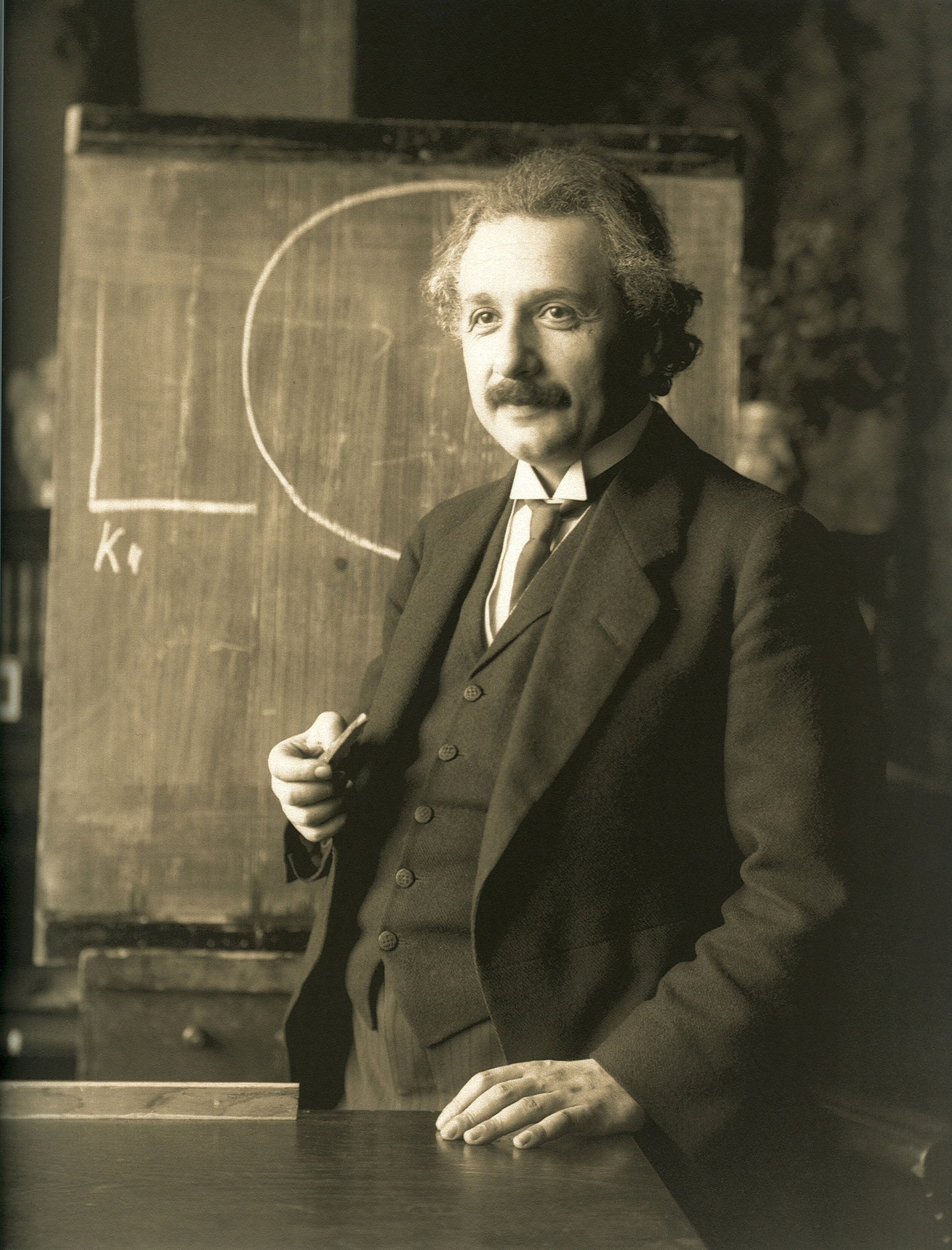Science in the 20th century has advanced dramatically. There was a huge amount of technologies that were developed in the 20th century such as the worldwide web, penicillin, television, transistor, DNA profiling, and the microprocessor. These brilliant inventions were created at the end of the 19th century but they were universally used and perfected in the 20th century. The first television and computer were made during the 20th century and it forever changed the dissemination of information and communication. But all of these would not be possible without these brilliant minds. Let’s take a look at the greatest scientists in the 20th century and how they’d change the world forever.
1. Albert Einstein
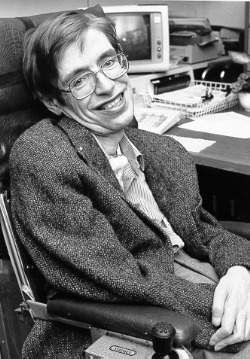
2. Stephen Hawking
Stephen Hawking (1942-2018) was a renowned British theoretical physicist and cosmologist, celebrated for his significant contributions to the fields of cosmology, general relativity, and quantum gravity, especially in the context of black holes. His scientific work, along with his distinctive presence in popular culture, made him one of the most recognizable scientists in the world.
Hawking made groundbreaking discoveries concerning black holes. In the 1970s, he theorized that black holes can emit radiation, a phenomenon now known as Hawking radiation. This work was vital in the development of theoretical physics, particularly the theories that attempt to unify general relativity with quantum mechanics.
Along with Roger Penrose, Hawking developed the singularity theorems in general relativity. These theorems provided important insights into the origins and fate of the universe, including the conditions under which singularities arise in spacetime.
Hawking was diagnosed with amyotrophic lateral sclerosis (ALS), a form of motor neurone disease, at the age of 21. Despite the progression of his illness, which eventually left him almost completely paralyzed, Hawking continued his scientific work. His ability to overcome his physical limitations and contribute significantly to science made him an inspiration to many.
Stephen Hawking’s legacy is marked by his extraordinary contributions to our understanding of the universe, as well as his remarkable personal journey. He remains an influential figure in the scientific community and an inspiration to people around the world, both within and beyond the realms of science.
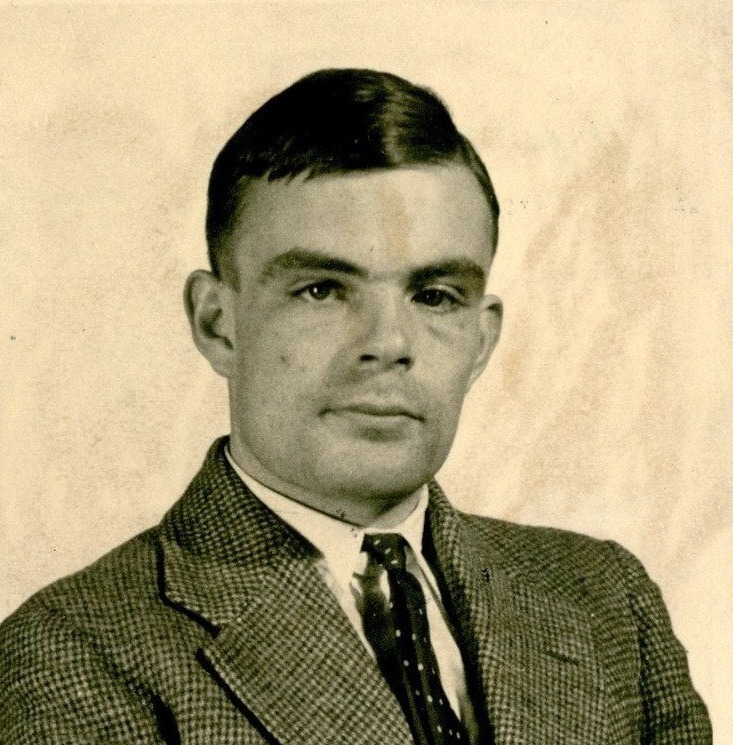
3. Alan Turing
Alan Turing (1912-1954) was a British mathematician, computer scientist, and cryptanalyst who is widely considered to be the father of theoretical computer science and artificial intelligence. His work during World War II in breaking the German Enigma code significantly contributed to the Allied victory.
Turing is best known for conceptualizing the Turing machine, an abstract device representing a machine that manipulates symbols on a strip of tape. This concept laid the groundwork for the modern theory of computation and algorithms.
During World War II, Turing played a pivotal role at Bletchley Park, Britain’s codebreaking center. He was instrumental in developing techniques for decrypting the messages encoded by the German Enigma machine, work that is estimated to have shortened the war in Europe by as many as two to four years.
After the war, Turing worked on the design of the Automatic Computing Engine (ACE) at the National Physical Laboratory and later at the University of Manchester on software for one of the earliest true computers, the Manchester Mark I.
Diving into the stories of the greatest scientists of the 20th century unveils the brilliant minds who paved the way for modern technology. Learn more about the visionaries behind the founding of computer science in our detailed post titled Who Founded Computer Science?
4. John Forbes Nash Jr.
John Forbes Nash Jr. (1928-2015) was an American mathematician renowned for his work in game theory, differential geometry, and partial differential equations. Nash’s innovative work in mathematics has profoundly impacted economics, evolutionary biology, and the study of strategic behavior, earning him the 1994 Nobel Memorial Prize in Economic Sciences.
Nash’s most famous contribution is the Nash Equilibrium, a concept in game theory. This equilibrium occurs in a non-cooperative game when players, each with their own strategy, have no incentive to change their chosen strategies after considering an opponent’s choice. His work extended existing theories by John von Neumann and Oskar Morgenstern, offering profound insights into the dynamics of human conflict and cooperation.
In 1994, Nash was awarded the Nobel Prize in Economic Sciences for his pioneering work on game theory. This recognition highlighted the broad impact of his mathematical insights on economic and social sciences.
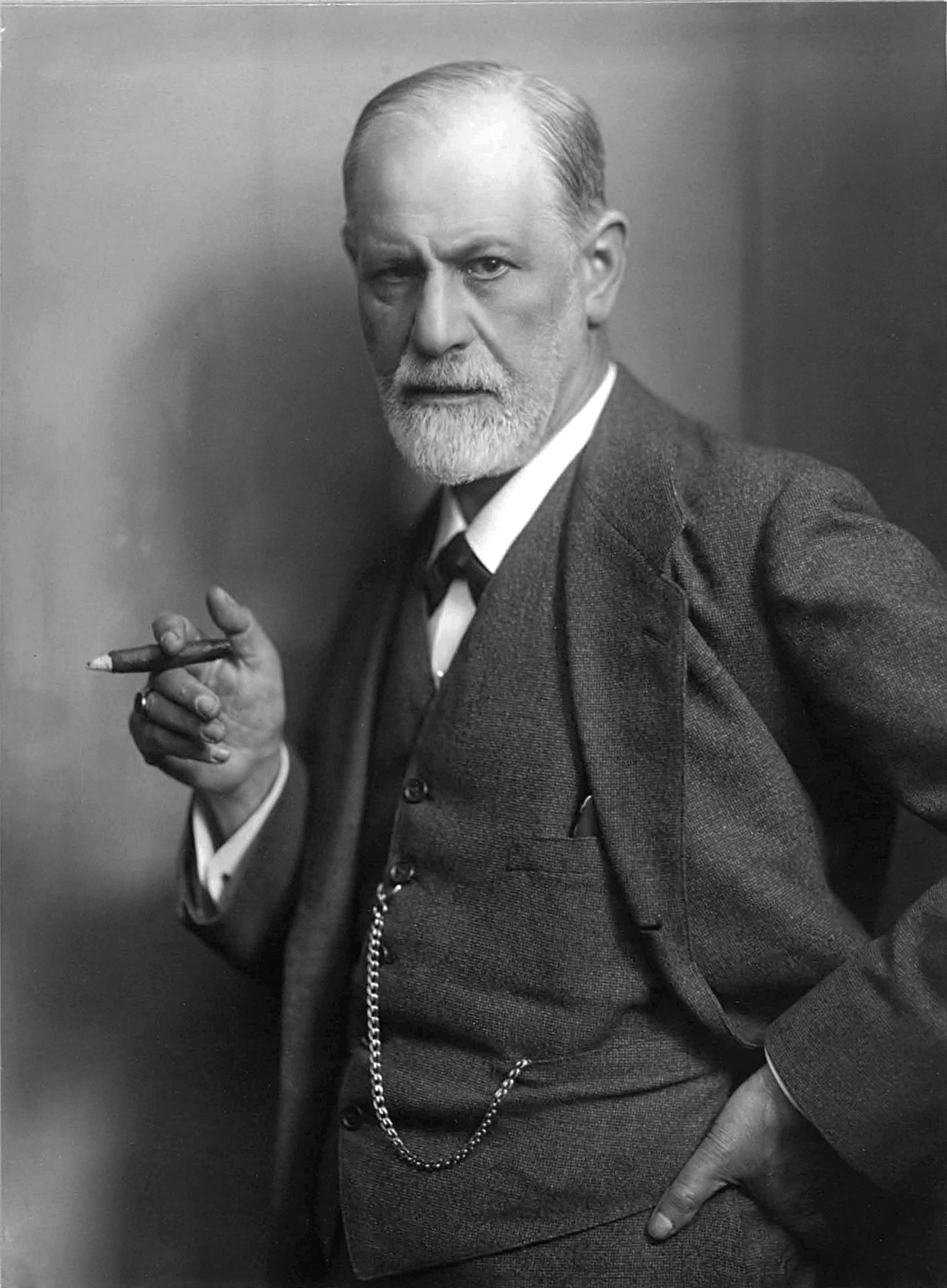
5. Sigmund Freud
Sigmund Freud (1856-1939) was an Austrian neurologist and the founder of psychoanalysis, a clinical method for treating psychopathology through dialogue between a patient and a psychoanalyst. Born in Freiberg, in the Austrian Empire (now the Czech Republic), Freud’s family moved to Vienna when he was a child, and he spent most of his life there.
Freud’s most notable works include “The Interpretation of Dreams” (1899), “The Ego and the Id” (1923), and “Civilization and Its Discontents” (1930). His theories on sexuality, the psyche, and the unconscious were controversial but highly influential.
Freud’s theories have had a profound impact on psychology, psychiatry, art, literature, and culture. While many of his ideas have been contested and revised over time, his work significantly contributed to the way we understand the human mind and behavior. Psychoanalysis as a therapeutic technique remains in practice, though it has evolved since Freud’s time.
6. Tim Burners-Lee
Sir Tim Berners-Lee, born on June 8, 1955, in London, England, is a computer scientist best known for inventing the World Wide Web. His innovation has fundamentally transformed global communication, information sharing, and the way we live in the digital age. Berners-Lee studied physics at Queen’s College, Oxford, and began his career in computer science. While working at CERN (the European Organization for Nuclear Research) in Switzerland in the late 1980s, he observed the challenges of sharing information among different computer systems. In response, he developed a revolutionary way of linking and accessing information over the internet, which he called the World Wide Web.
The World Wide Web rapidly expanded beyond CERN and academia, becoming a global phenomenon. Berners-Lee’s invention has had a profound impact on society, changing how we access information, communicate, conduct business, and entertain ourselves. Berners-Lee has continued to be involved in the development and governance of the web. He founded the World Wide Web Consortium (W3C) to oversee the Web’s continued development and ensure it remains a universal and open platform.
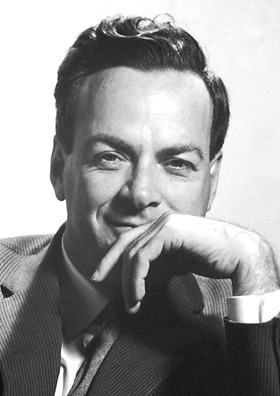
7. Richard Feynman
Richard Feynman (1918-1988) was an American theoretical physicist renowned for his work in the path integral formulation of quantum mechanics, the theory of quantum electrodynamics, and the physics of superfluidity of supercooled liquid helium, as well as his work in particle physics for which he proposed the parton model. He was a celebrated science communicator, known for his ability to convey complex scientific ideas with clarity and enthusiasm.
Feynman’s most notable work was in the development of QED, the theory that describes how light and matter interact. For this work, he shared the Nobel Prize in Physics in 1965 with Julian Schwinger and Sin-Itiro Tomonaga.
Feynman’s contributions to physics and his unique approach to teaching and problem-solving have left a lasting legacy in the world of science. His ability to simplify complex concepts and engage with audiences has made him one of the most beloved and respected figures in physics. His legacy continues to inspire and influence both scientists and science enthusiasts around the world.
8. Francis Harry Compton Crick
Francis Harry Compton Crick (1916-2004) was a British biophysicist and molecular biologist, most famous for co-discovering the structure of DNA with James Watson. This landmark achievement profoundly impacted the understanding of genetic biology and earned Crick, Watson, and Maurice Wilkins the Nobel Prize in Physiology or Medicine in 1962.
After the war, Crick shifted his focus to biology. He began working at the Cavendish Laboratory at Cambridge University, where he met American biologist James Watson. Together, in 1953, they proposed the double helix structure of the DNA molecule, based on X-ray diffraction data produced by Rosalind Franklin and Maurice Wilkins. This discovery was pivotal in understanding the mechanism of genetic inheritance.
Crick’s work on DNA and his contributions to molecular biology and genetics have had a profound and lasting impact on science. His discoveries paved the way for numerous advancements in genetic research, biotechnology, and medical science. Crick is remembered not only for his scientific brilliance but also for his collaborative approach to research and his ability to communicate complex ideas with clarity.
9. James Watson
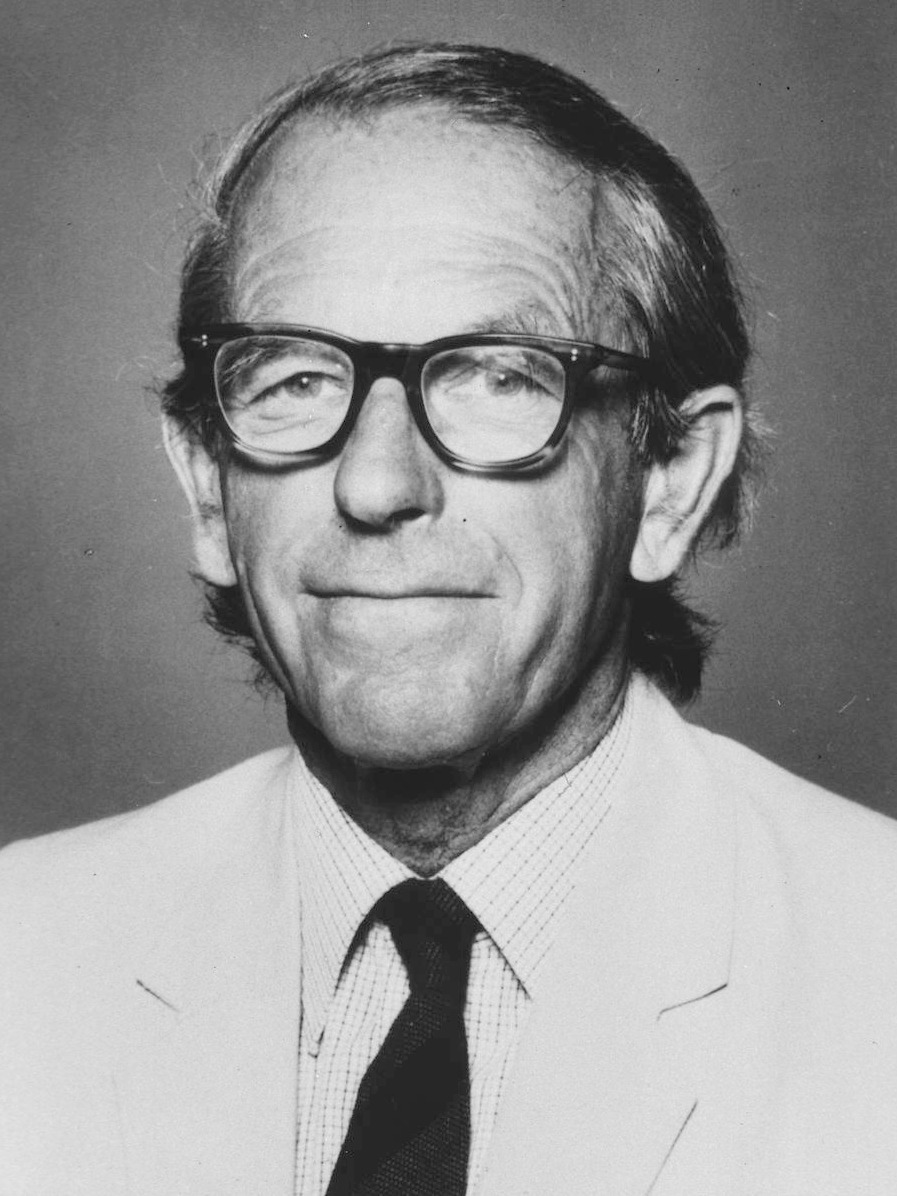
10. Frederick Sanger
Frederick Sanger (1918-2013) was a distinguished British biochemist whose pioneering work in the field of genetics earned him two Nobel Prizes. Known for his humility and methodical approach to research, Sanger made significant contributions that have fundamentally shaped our understanding of molecular biology.
Sanger’s first Nobel Prize in Chemistry, awarded in 1958, was for his work on the structure of proteins, particularly insulin. He developed a method for accurately determining the amino acid sequence of proteins. This work on insulin was the first time a protein’s full amino acid sequence had been sequenced and it laid the foundation for the field of proteomics.
Sanger’s second Nobel Prize in Chemistry, which he shared in 1980, was for his contribution to the determination of base sequences in nucleic acids. He developed the “Sanger Method” or “Dideoxy Method” for sequencing DNA, a technique that became the standard method for DNA sequencing for many years and led to significant scientific breakthroughs, including the Human Genome Project.
Despite his monumental achievements, Sanger was known for his modesty and dedication to pure research. He avoided publicity and focused his career on his lab work and research endeavors, making invaluable contributions to the understanding of life’s molecular mechanisms.
11. Larry Page
Larry Page is an American computer scientist and internet entrepreneur, best known as one of the co-founders of Google Inc., one of the world’s most dominant and influential technology companies. Born Lawrence Edward Page on March 26, 1973, in East Lansing, Michigan, he developed an early interest in computers and technology, inspired by his parents who were both computer experts.
Page attended Stanford University for graduate studies in computer science. It was at Stanford where he met Sergey Brin, with whom he would later co-found Google. Their collaboration began as a research project in 1996, which focused on developing a new kind of search engine technology. This project led to the creation of Google in 1998, a company that revolutionized the way information is searched and consumed on the internet.
Larry Page’s impact on the technology industry and the internet is profound. Google’s search engine has become an integral part of daily life for billions of people worldwide. Beyond search, Page’s work and vision have driven innovations in a variety of fields, from mobile computing to data analytics.
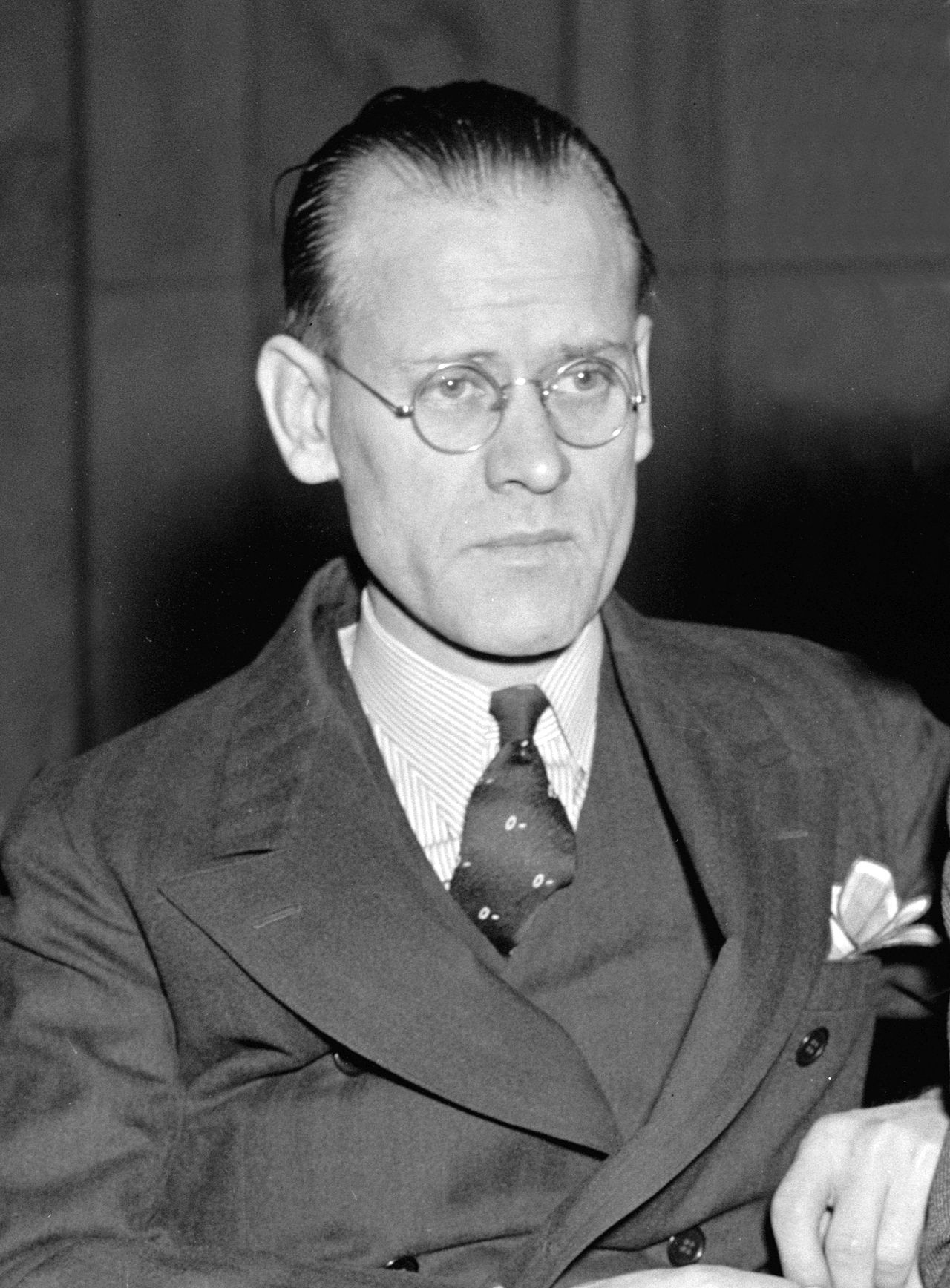
12. Philio Farnsworth
Philo Farnsworth (1906-1971) was an American inventor and television pioneer, credited with inventing the first fully functional all-electronic image pickup device (video camera tube), the image dissector, as well as the first fully functional and complete all-electronic television system. His innovations significantly contributed to the development of the television as we know it today.
Farnsworth’s most significant work began in his teenage years when he first conceptualized a television system that could capture moving images as a series of lines to be transmitted to a device. In 1927, at just 21 years old, Farnsworth succeeded in transmitting the first image via his all-electronic system, a major breakthrough in the field.
Farnsworth’s early inventions laid the groundwork for the development of electronic television. His image dissector camera tube converted individual elements of an image into electrical impulses. This technology was fundamental to the evolution of television from mechanical systems to the fully electronic television systems we use today.
Farnsworth’s career was marked by numerous patent battles, most notably with RCA and its chief engineer, Vladimir Zworykin. Despite these disputes, Farnsworth’s contributions to electronic television were eventually recognized, and he was granted patents for his inventions.
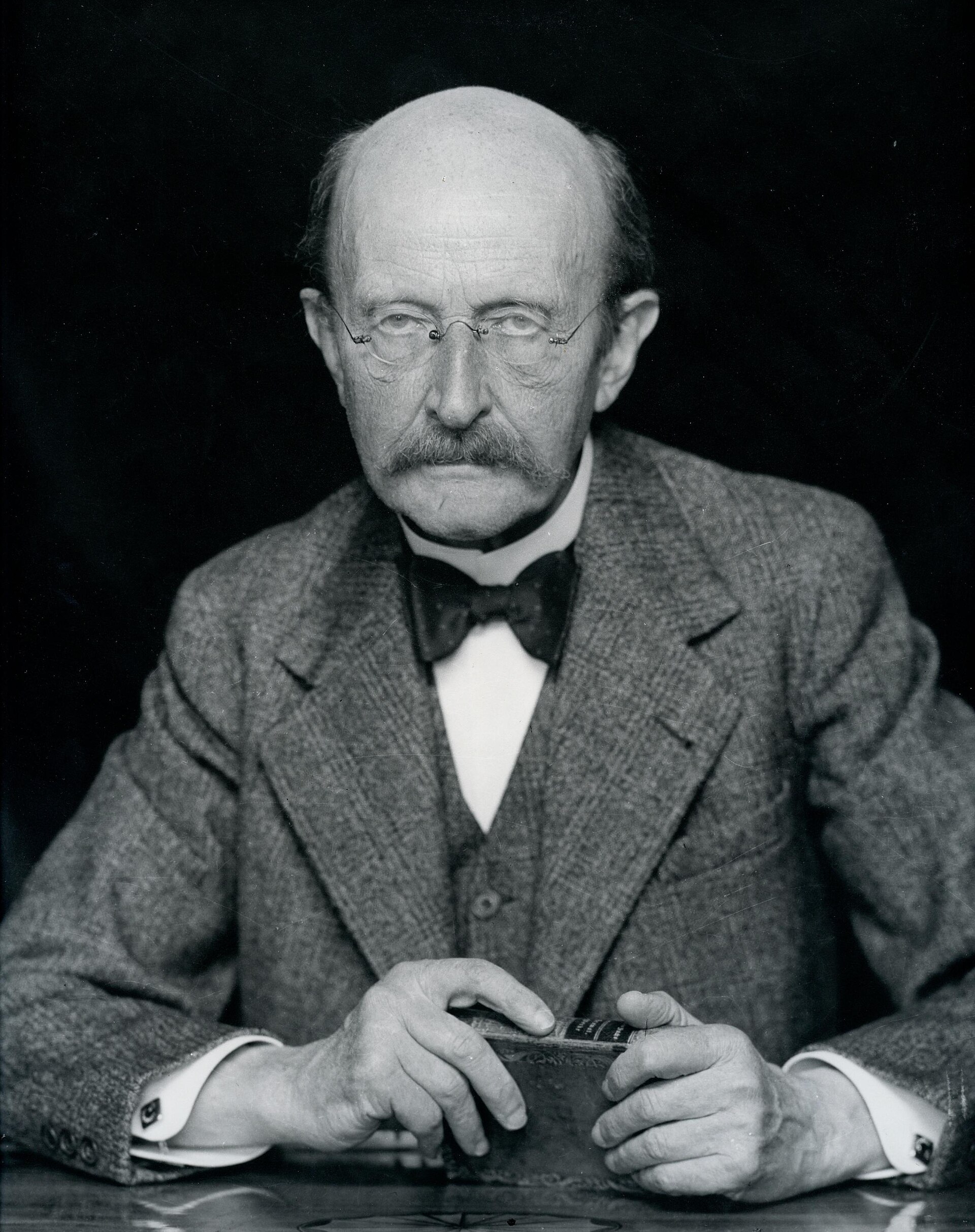
13. Max Planck
Max Planck (1858-1947) was a German theoretical physicist who is considered the father of quantum theory. His work fundamentally changed our understanding of atomic and subatomic processes, marking a major shift in the field of physics.
Planck’s most significant contribution to physics was the introduction of quantum theory in 1900. He proposed that energy is emitted in discrete units or “quanta,” rather than in a continuous stream as previously thought. This hypothesis was formulated to solve the problem of black-body radiation. In his quantum theory, Planck introduced the idea of the quantum of action, now known as Planck’s constant (h). This fundamental constant has become central to quantum mechanics and has various applications in physics. In 1918, Planck was awarded the Nobel Prize in Physics for his development of quantum theory, which revolutionized our understanding of atomic and subatomic processes.
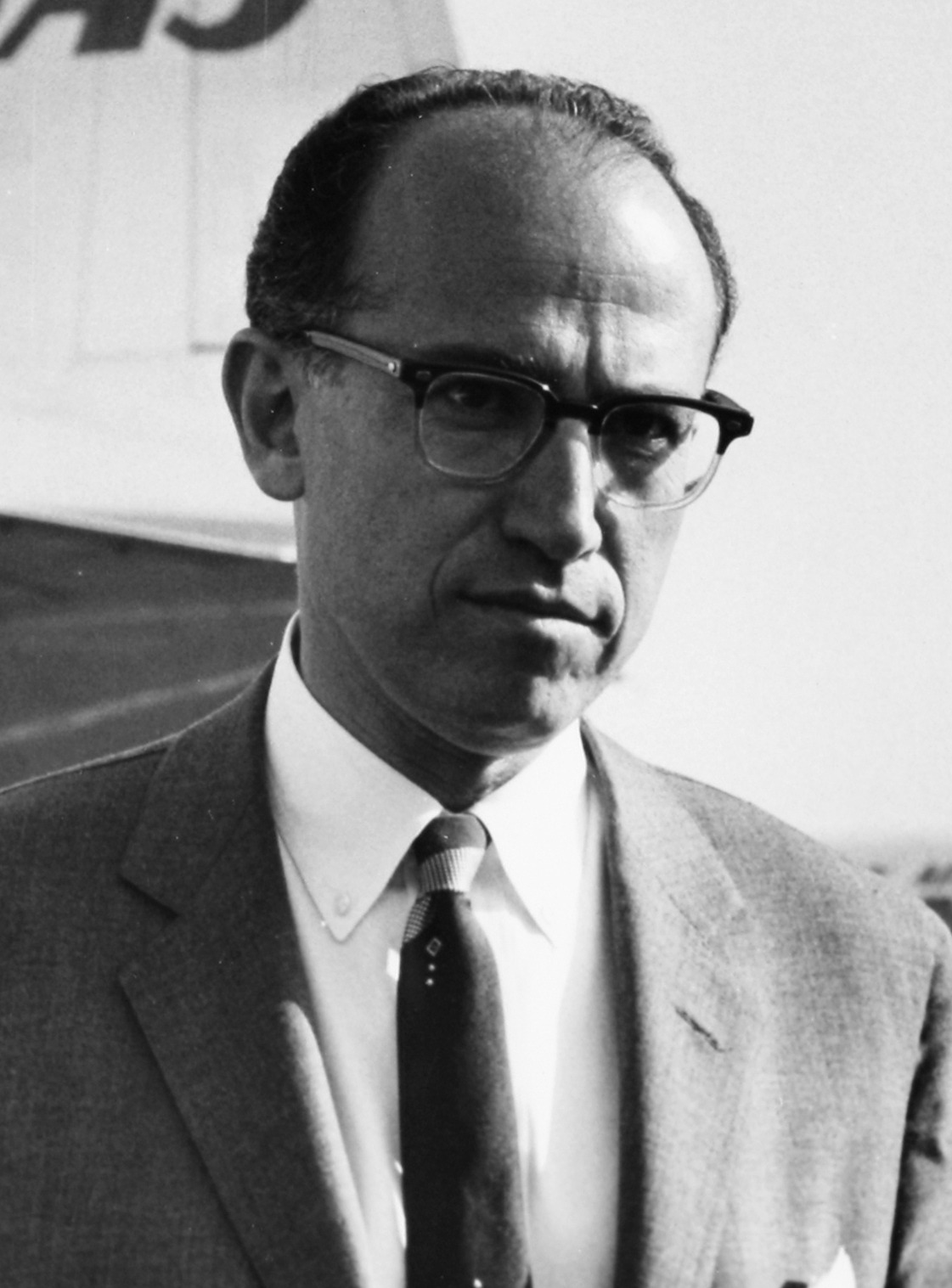
14. Jonas Salk
Jonas Salk (1914-1995) was an American medical researcher and virologist, best known for his discovery and development of the first successful polio vaccine. Born in New York City to Russian-Jewish immigrant parents, Salk’s early interest in science led him to pursue a career in medicine.
In the 1950s, Salk developed the inactivated polio vaccine (IPV), which was made from killed poliovirus strains of each of the three poliovirus types. At a time when polio was considered one of the most frightening public health problems in the world, this vaccine proved to be a groundbreaking advancement. The field trials for Salk’s vaccine, conducted in 1954, were the largest medical experiment in history at that time. In 1955, the vaccine was declared safe and effective, leading to nationwide immunization campaigns.
After his work on the polio vaccine, Salk founded the Salk Institute for Biological Studies in La Jolla, California, in 1963. The institute became a prestigious center for medical and scientific research.
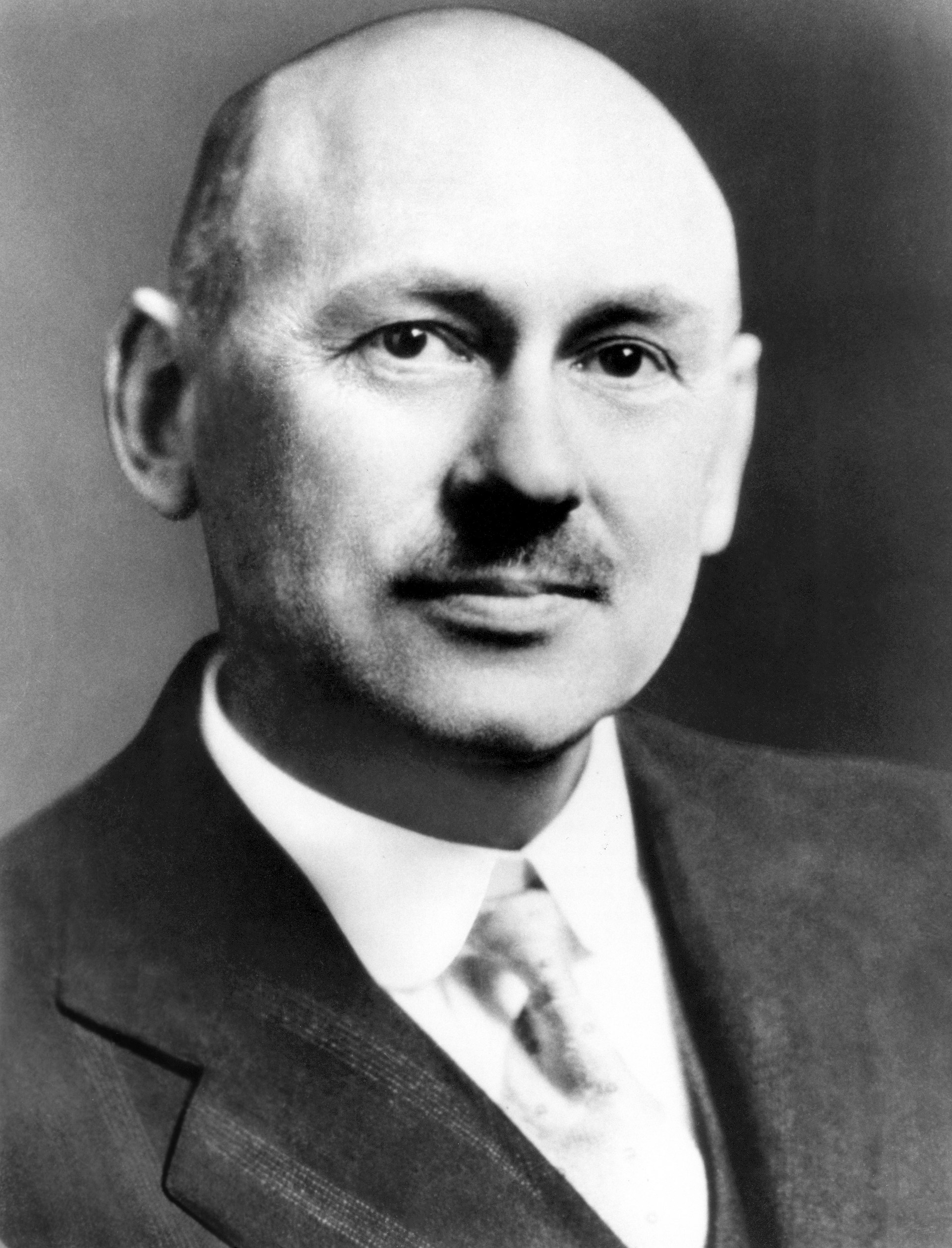
15. Robert Goddard
Robert H. Goddard (1882-1945) was an American engineer, professor, physicist, and inventor who is credited with creating and building the world’s first liquid-fueled rocket. Goddard is often referred to as one of the founding fathers of modern rocketry and space flight.
Despite his groundbreaking work, Goddard’s ideas were often met with skepticism and ridicule during his lifetime. His proposal of sending rockets to the moon was particularly criticized. However, during World War II, the U.S. government began to recognize the potential of his research, leading to funding and support of his work.
Robert H. Goddard is now recognized as one of the pioneers of rocketry and space flight. His visionary work paved the way for the space age, influencing the development of the rockets that eventually carried humans to the Moon. The Goddard Space Flight Center in Greenbelt, Maryland, is named in his honor, serving as a testament to his contributions to the field of space exploration.
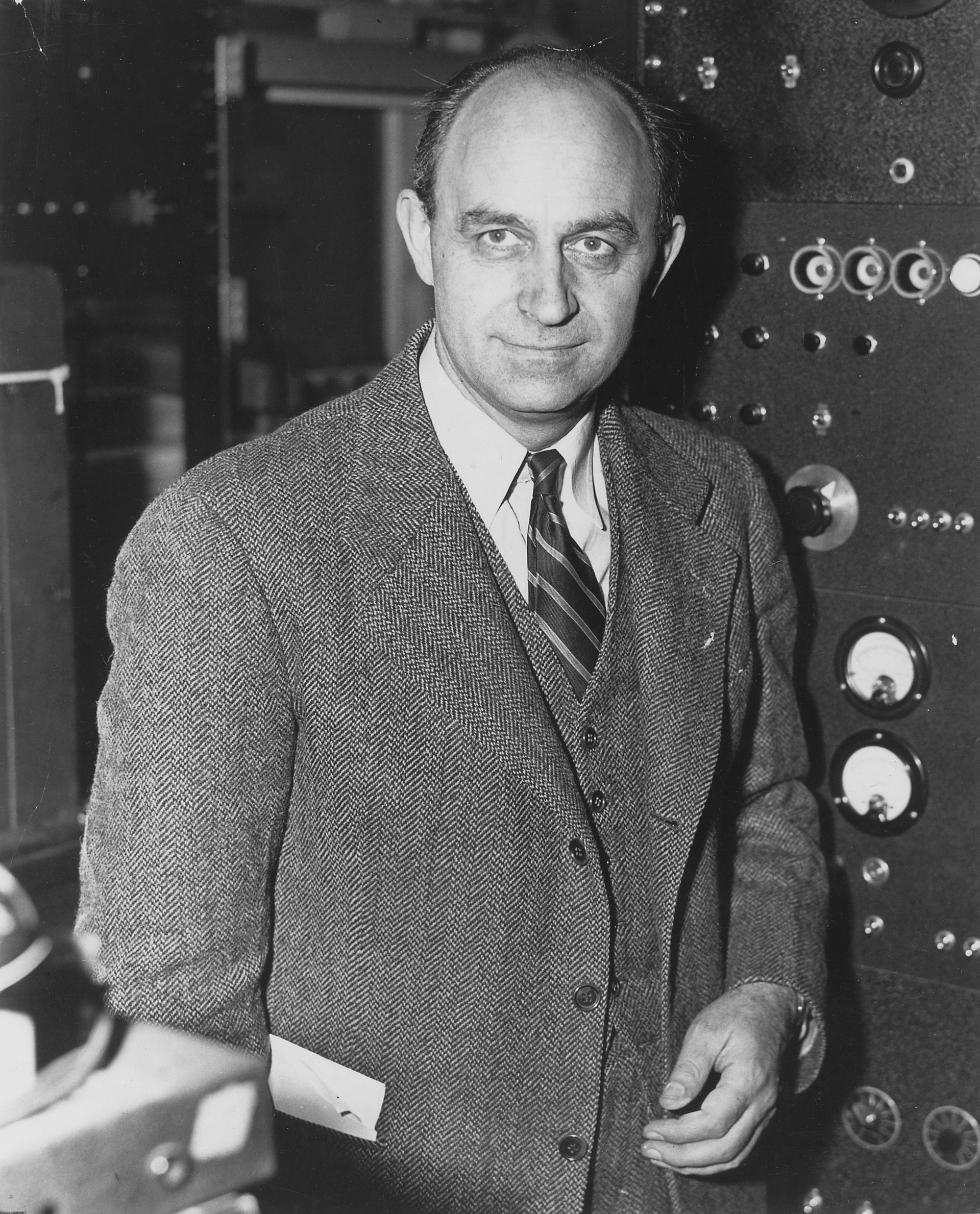
16. Enrico Fermi
Enrico Fermi (1901-1954) was an Italian-American physicist, celebrated for his contributions to the development of nuclear physics, quantum theory, and nuclear technology. He is particularly renowned for his work on the first nuclear reactor and his contributions to the advancement of quantum theory and particle physics.
Enrico Fermi’s legacy in physics is immense. He is remembered for his extraordinary ability to combine theoretical work with ingenious experiments. The element fermium, a synthetic element produced from the first hydrogen bomb explosion, was named in his honor.
Fermi received the Nobel Prize in Physics in 1938 for his demonstrations of the existence of new radioactive elements produced by neutron irradiation and for his related discovery of nuclear reactions brought about by slow neutrons.
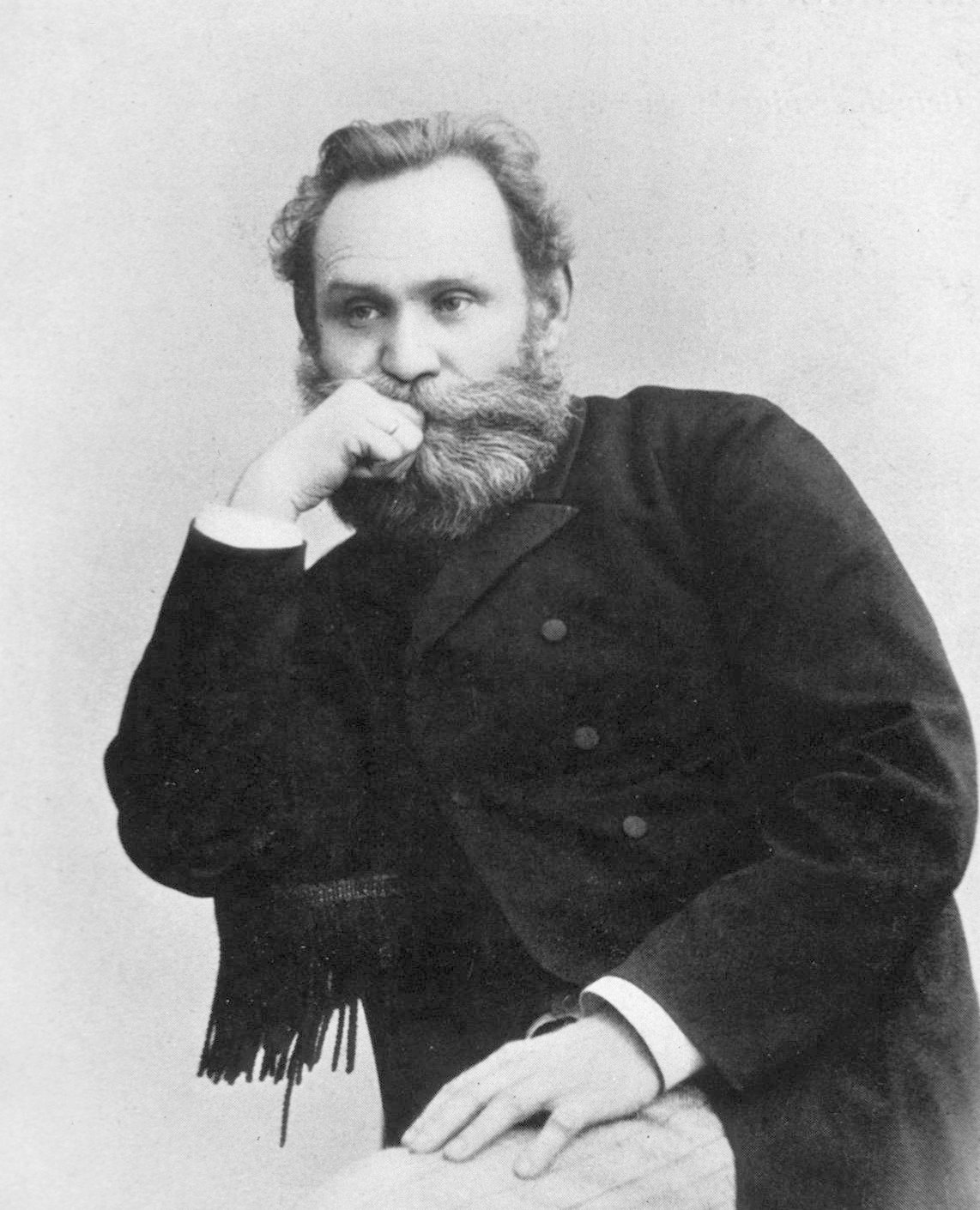
17. Ivan Pavlov
Ivan Pavlov (1849-1936) was a Russian physiologist best known for his work in classical conditioning, a fundamental theory in behavioral psychology. Born in Ryazan, Russia, Pavlov initially studied theology but later shifted to science, eventually becoming a prominent physiologist.
Pavlov’s research earned him the Nobel Prize in Physiology or Medicine in 1904, recognizing his work on the physiology of digestion. Beyond his Nobel Prize, Pavlov’s legacy is most enduring in the field of psychology, where his discoveries regarding classical conditioning remain central to the understanding of learning and behavior modification. His work laid the groundwork for further research in behaviorism and had a significant impact on various domains, including education, therapy, and understanding animal behavior. Ivan Pavlov remains a seminal figure in both psychology and physiology, renowned for his pioneering research and its lasting implications.
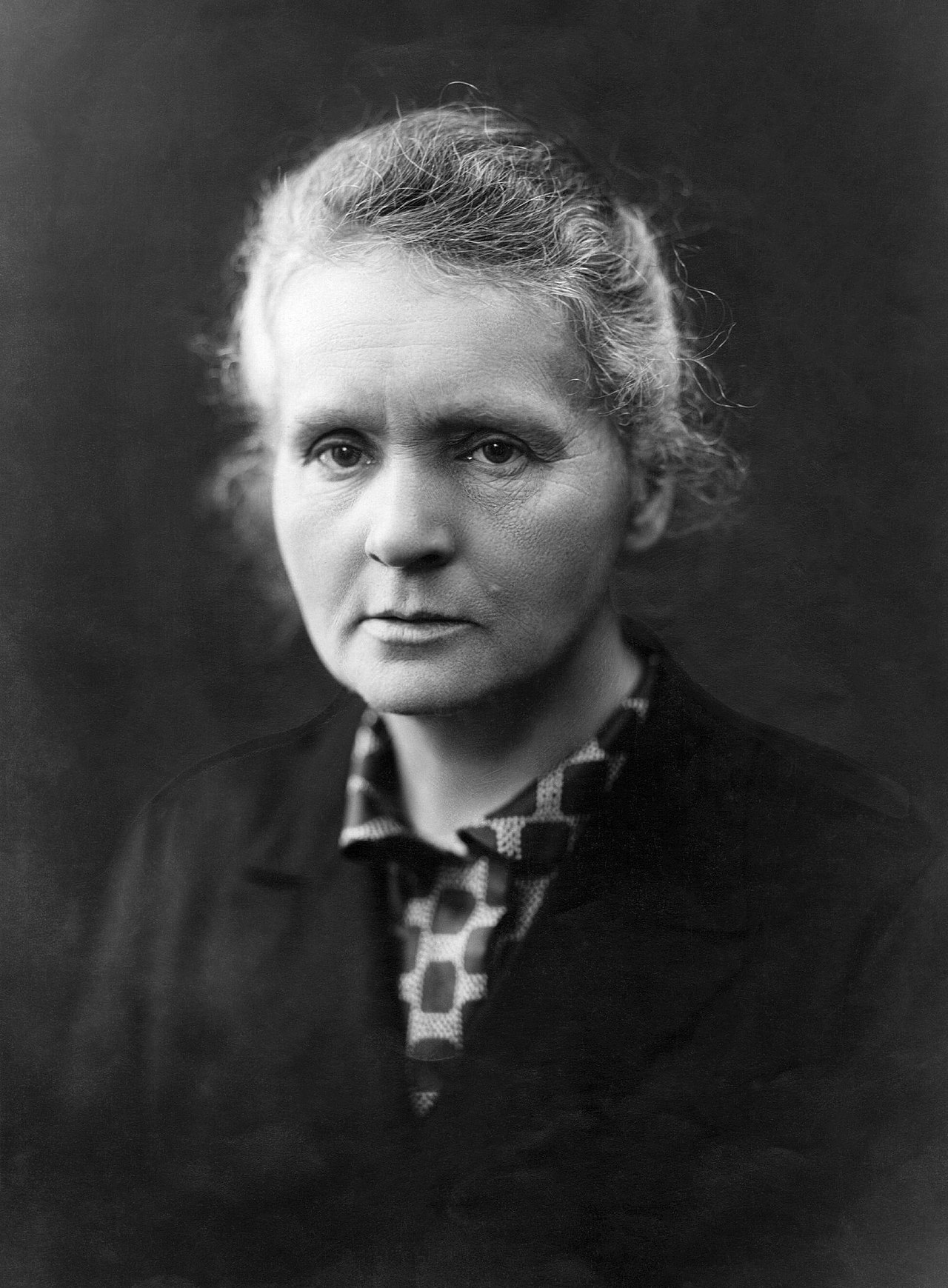
18. Marie Curie
Marie Curie (1867-1934), born Maria Skłodowska in Warsaw, Poland, was a pioneering physicist and chemist who became the first woman to win a Nobel Prize and the only person to win Nobel Prizes in two different scientific fields. Her groundbreaking research laid the foundation for our understanding of radioactivity, a term she coined.
Marie Curie’s contributions to science were not only groundbreaking in their own right but also paved the way for numerous advancements in both physics and medicine. Her research into radioactivity contributed to the development of X-rays in surgery and treatments for cancer.
Marie Curie died in 1934 from aplastic anemia, believed to be caused by prolonged exposure to radiation. Despite the challenges she faced, Curie’s legacy as a scientist and trailblazer for women in science is profound. She is remembered not only for her monumental scientific contributions but also for her resilience and determination in overcoming societal barriers. Her life and work continue to inspire and impact the fields of science and medicine.
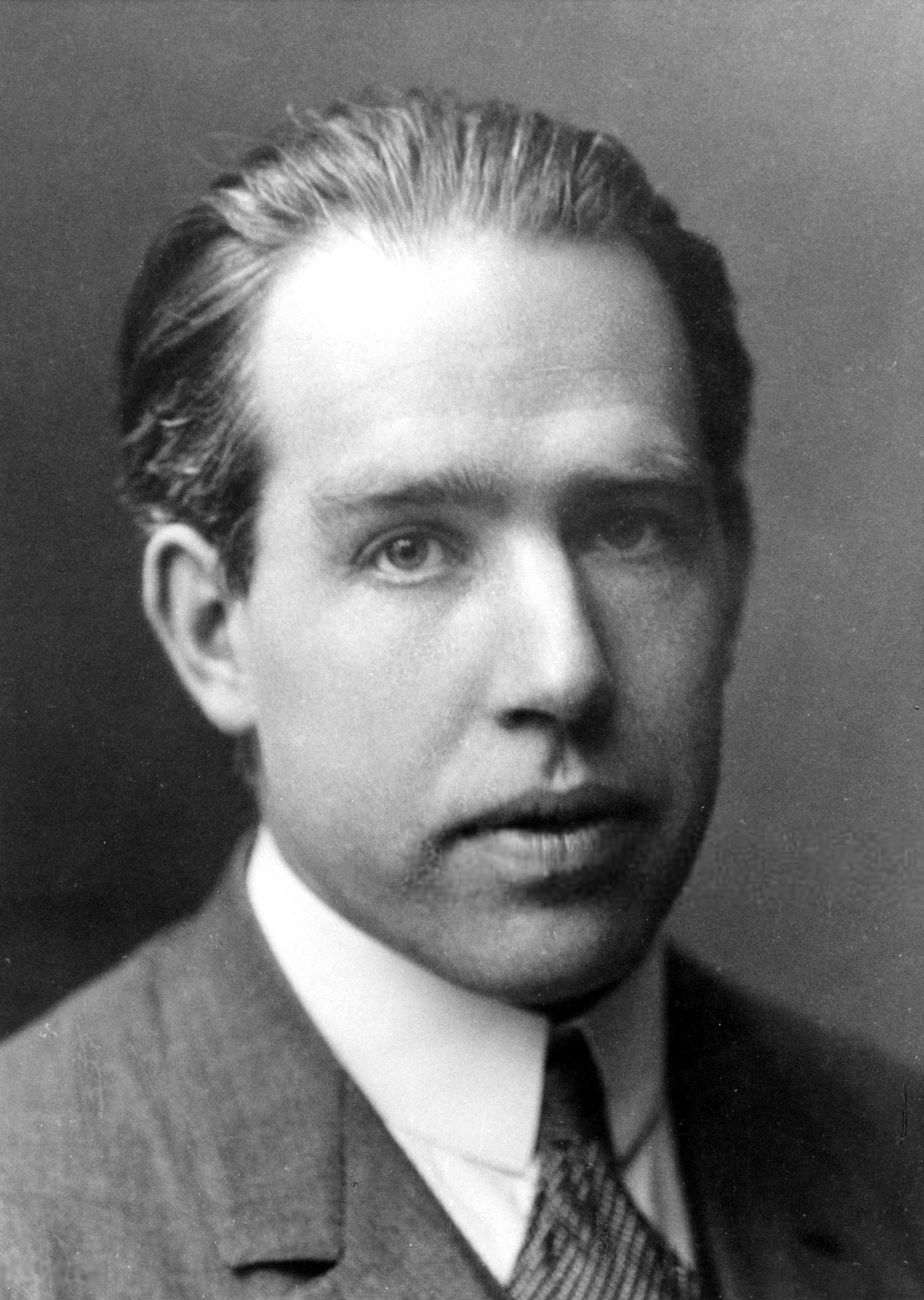
19. Niels Bohr
Niels Bohr (1885-1962) was a Danish physicist who made foundational contributions to understanding atomic structure and quantum theory. Born in Copenhagen, Denmark, Bohr developed the Bohr model of the atom, which introduced the theory that electrons travel in orbits around the atom’s nucleus and the quantum leap concept. This work earned him the Nobel Prize in Physics in 1922.
Bohr’s theories were pivotal in the shift from classical to quantum physics. His work not only advanced the understanding of atomic structure but also had profound implications for the development of nuclear energy and quantum computing.
20. Rosalind Franklin
Rosalind Franklin (1920-1958) was a British biophysicist and X-ray crystallographer whose work was crucial in understanding the molecular structures of DNA (deoxyribonucleic acid), RNA (ribonucleic acid), viruses, coal, and graphite. Despite her significant contributions to molecular biology, her role was not fully recognized until after her death.
Franklin’s work on the DNA structure was shared without her knowledge with James Watson and Francis Crick at Cambridge University. Watson and Crick used her data, among other research, to formulate their famous model of the DNA double helix. While Watson, Crick, and Maurice Wilkins were awarded the Nobel Prize in Physiology or Medicine in 1962 for their work, Franklin was not included in this recognition. Nobel Prizes are not awarded posthumously, and Franklin had passed away in 1958.
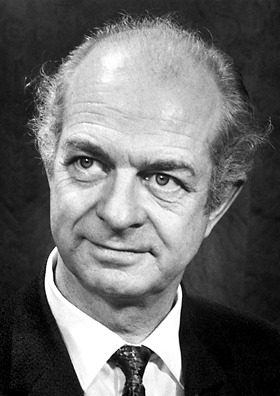
21. Linus Pauling
Linus Pauling (1901-1994) was a highly influential American chemist, biochemist, and peace activist, renowned for his pioneering work in the field of chemical bonding and molecular biology. Born in Portland, Oregon, Pauling showed an early interest in science and went on to earn a Ph.D. in chemistry from the California Institute of Technology (Caltech).
Pauling’s scientific contributions are vast and varied. He is particularly famous for his research on the nature of the chemical bond. His book, “The Nature of the Chemical Bond,” published in 1939, is considered one of the most influential chemistry books ever written. In it, Pauling introduced the concept of orbital hybridization and clarified the nature of ionic and covalent bonding, which had profound implications for the understanding of molecular structures.
In 1954, Pauling was awarded the Nobel Prize in Chemistry for his research into the nature of the chemical bond and its application to the elucidation of complex substances. He made significant contributions to the understanding of molecular structures, including the alpha helix structure of proteins.
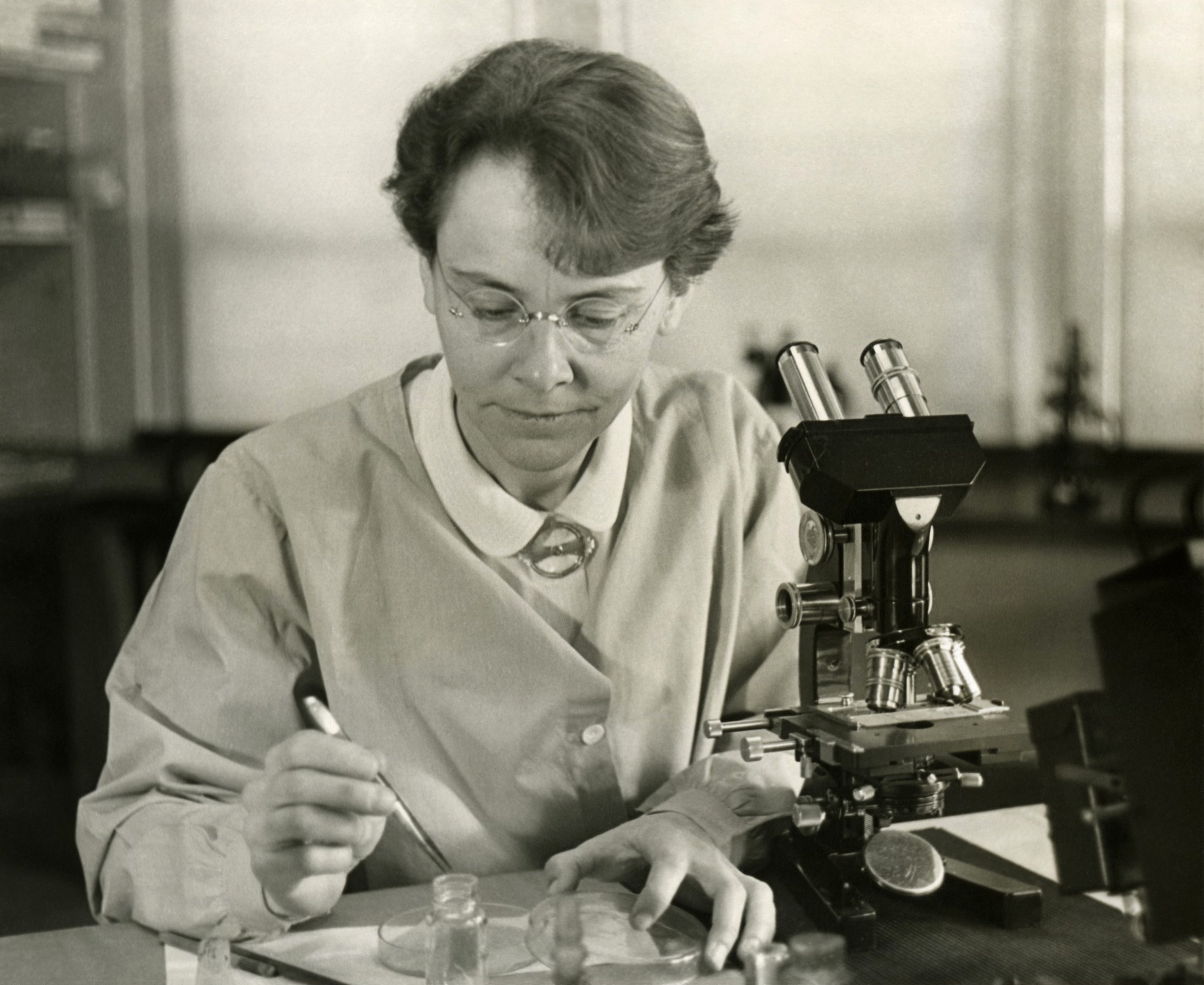
22. Barbara McClintock
Barbara McClintock (1902-1992) was an American geneticist renowned for her groundbreaking work in the field of cytogenetics. Born in Hartford, Connecticut, McClintock pursued her passion for science at a time when few women were recognized in the field. She earned her PhD in botany from Cornell University, where she specialized in genetics.
McClintock’s most significant contribution was her discovery of transposable elements, or “jumping genes,” in maize (corn). Through meticulous cytogenetic studies, she demonstrated that these genes could move between different locations on a chromosome. This discovery fundamentally changed our understanding of genetic organization and inheritance, revealing a previously unknown mechanism of gene regulation and mutation.
Despite the revolutionary nature of her work, McClintock’s findings were initially met with skepticism. However, her research gained widespread acceptance and acclaim in the 1960s and 1970s as other scientists confirmed and expanded upon her discoveries.
Conclusion
In conclusion, the contributions of Albert Einstein, Stephen Hawking, Alan Turing, and others have been instrumental in propelling forward the frontiers of science and technology. Their discoveries have opened new pathways for exploration and understanding, fundamentally changing the way we interact with our world. The significance of their work extends beyond their lifetime, continuing to influence and inspire current and future generations in various scientific fields.
These exceptional minds demonstrate the power of human curiosity and intellect. Their relentless pursuit of knowledge and their commitment to understanding the complexities of the universe have left an indelible mark on the fabric of science. Their legacies, marked by perseverance, innovation, and a deep desire to unravel the mysteries of the natural world, continue to light the way for explorers of the unknown and remind us of the boundless potential of the human mind.

